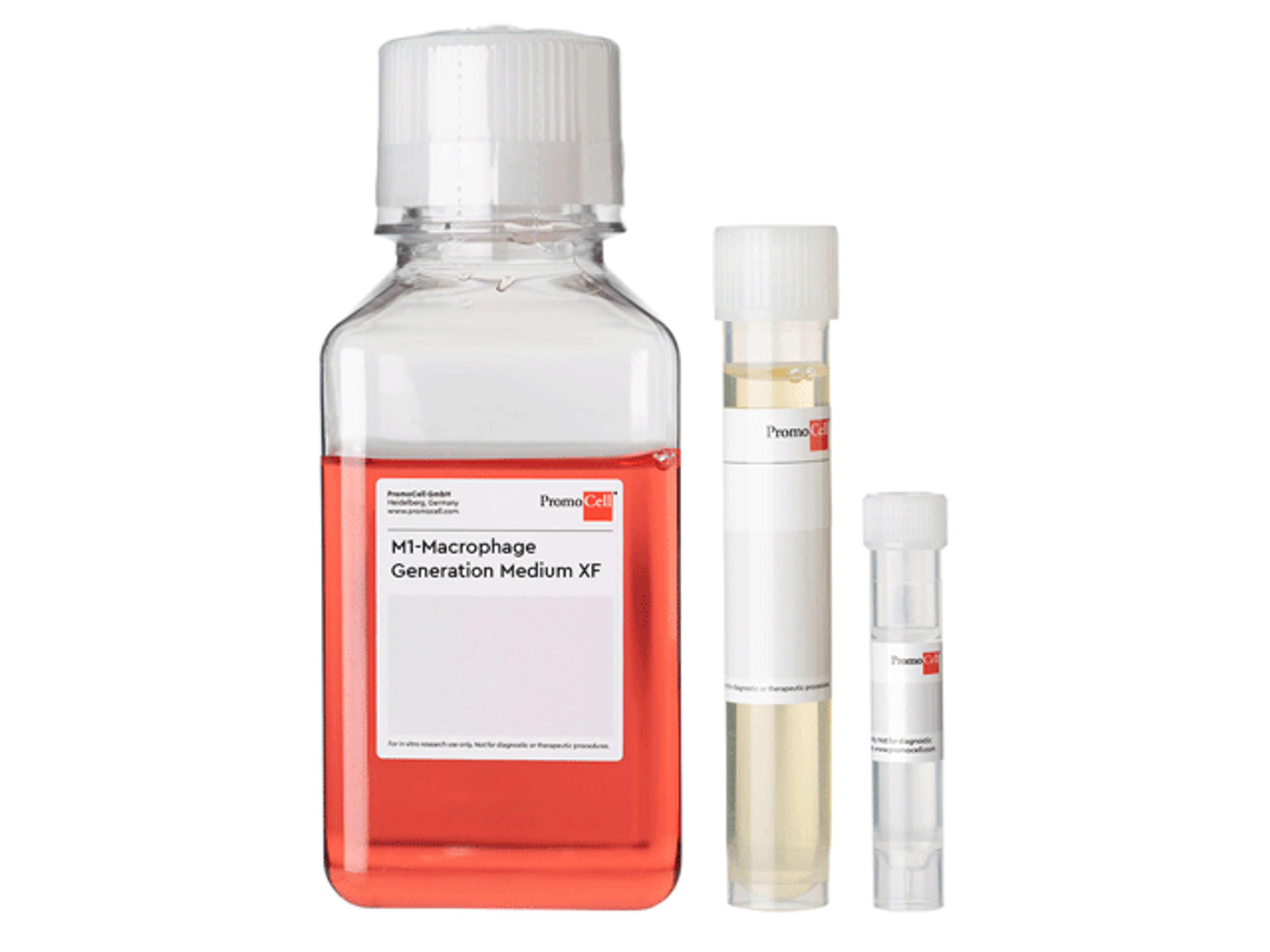Macrophage Polarization Plasticity in Health and Disease
6 Nov 2018Macrophages are tissue-resident professional phagocytes and antigen-presenting cells (APC), that form as a result of the differentiation of circulating peripheral blood monocytes. They perform acrive and regulatory immune functions in both innate and adaptive immunity. Macrophages influence the outcome of many diseases, e.g. allergic and autoimmune disorders, cancer, diabetes, atherosclerosis, rheumatoid arthritis and metabolic syndrome. It is difficult to isolate sufficient amounts of primary human macrophages of a homogeneous phenotype, and they do not proliferate in culture. The cells obtained often exhibit significant phenotypical heterogeneity. Human monocyte-derived macrophages (hMDM) are highly pure and readily available, can be differentiated into macrophages in vitro and are therefore an excellent alternative.

